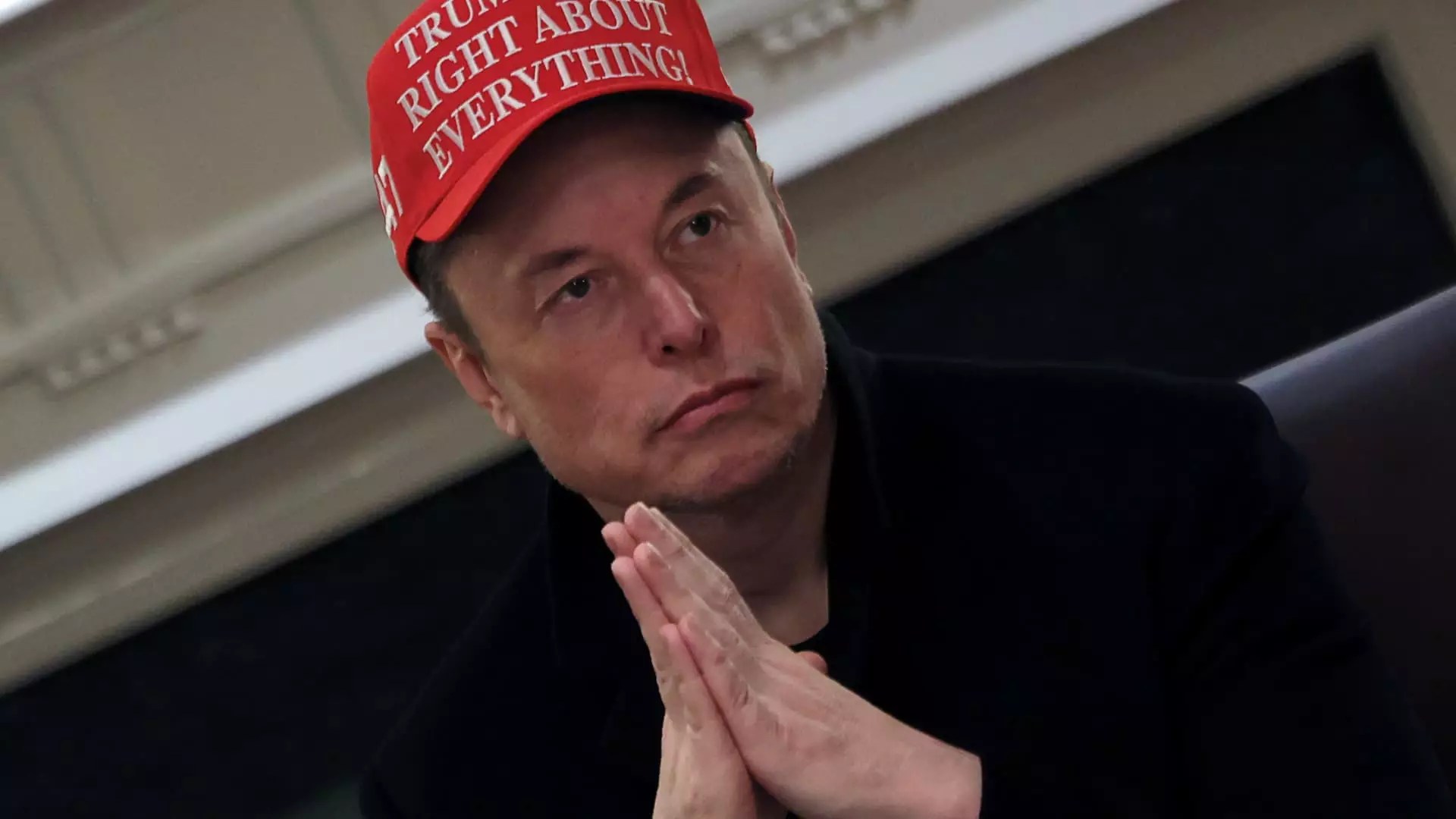The recent trajectory of Tesla shares has been nothing short of a financial rollercoaster, plummeting 38% this year alone. Investors who were riding high after a significant 23% gain—one of the company’s largest surges since 2013—found themselves grappling with a stark reality when the stock dropped by 7.3%, closing at $252.40. This volatility starkly contrasts with the relatively stable growth narrative one would expect from one of the most heralded tech companies. The inconsistency seems to be a reflection of the broader market’s erratic response to political developments, especially concerning tariffs and international trade.
Trump’s Trade Policies: A Double-Edged Sword
President Donald Trump’s trade policies have played a compelling role in shaping Tesla’s fortunes. While a temporary pause on tariffs sent the stock spiraling upwards, clarity on new tariffs on China immediately deflated investor optimism. The call for a minimum 10% tariff rate coupled with an exorbitant 145% tariff from China has left market participants reeling. Trump’s haphazard strategies and lack of coherence create a backdrop of uncertainty for companies like Tesla, which rely on international trade and supply chains. Analysts from reputable firms like UBS and Goldman Sachs are cautiously re-evaluating Tesla’s stock value, with warnings of lower price targets and an impending bearish outlook, citing concerns over future margins. This inconsistency in strategic direction has rendered Tesla shares as one of the most volatile on the market.
Mounting Challenges in Global Markets
Tesla’s European decline amplifies the distressing picture for the company. Sales decline in Europe, coupled with increased competition in electric vehicles (EVs), signals a need for Tesla to rework its strategies. Not only has Tesla been confronted with diminishing market shares, but rising tariffs also threaten its profit margins. The challenging economic climate, exacerbated by political conflicts, creates obstacles for Tesla’s expansion ambitions—especially since many of its parts are imported from places now facing punitive tariffs. If the current trajectory continues, there is a distinct possibility that consumer demand may wane as they turn to competitors who can offer a more economically feasible alternative.
The Impact of Activism and Image on Sales
Tesla’s brand image is being challenged by a myriad of factors, from protests at its facilities to Musk’s controversial involvement in political affairs. Public perceptions of Musk as a figure who oscillates between entrepreneurial genius and erratic influencer raise questions about the company’s future. Endorsements of far-right political parties in Europe have also alienated segments of the consumer base that are increasingly aware of the social implications of their purchasing choices. Compounding this distress is the notion that following political winds may dilute the brand’s integrity, ultimately leading to diminished consumer loyalty.
The Squeeze from Short Sellers
Interestingly, the tumultuous swings in Tesla shares have provided some solace to short sellers, who benefited substantially from the recent sell-off. With short interest hovering around 80.5 million shares and an impressive notional value of approximately $17.9 billion, the short-selling activity reflects the growing skepticism regarding Tesla’s long-term prospects. Such market activity can often signal a vote of no confidence in a company’s ability to weather the storm, further aggravating volatility as the market reacts to news updates, both political and corporate. Short sellers, while often perceived as villains in the investment narrative, play a critical role in shaping market discourse and foreshadowing potential downturns.
Tesla stands at a crossroads; it is caught in a whirlwind of shifting political climates, competitive pressures, and self-inflicted brand wounds. The stock’s erratic movements serve as a testament to the fragility of its current position, especially amidst a backdrop of domestic and international challenges. The stark decrease in share value and the growing scrutiny from analysts suggest that without a recalibration of both corporate strategy and public relations, Tesla may continue to experience significant turmoil in the face of an ever-evolving market landscape. In the world of investing, where perception often solidifies into reality, Tesla’s current crisis may just be the beginning of an unraveling that could fundamentally reshape its storied legacy.


Leave a Reply